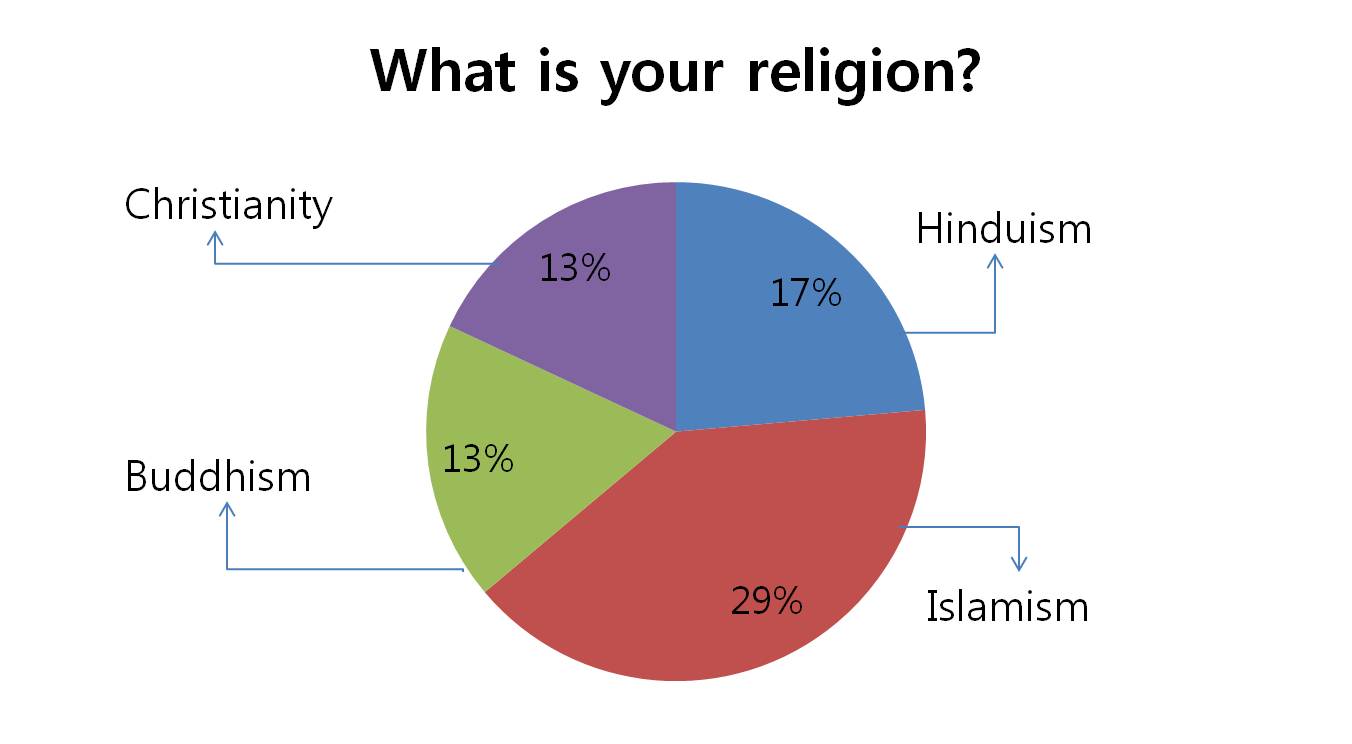
POSTECH has many students from diverse countries and they may also have their own religions related to their home countries. The survey of religions of foreign students in POSTECH shows the prevalence of each religion. A total of 24 international students responded to the survey. The categories of religion in POSTECH are divided into five: Christianity, Buddhism, Catholicism, Islam, and Hinduism. Among those religions, Islam occupies the highest proportion (29%), and it is more than twice that of Christianity and Buddhism, each at 13% of respondents. Furthermore, it is surprising that Catholicism has 0%. The foreign students do their religious activity in school club only consisting of foreigners, alone or other clubs outside of POSTECH. Muslim students in Moslem community, consisting of only Postechians, researchers, and faculty of POSTECH, gather at DICE every Friday to do religious activities. Some Christians go to Choogjin Church to pray. Mormons and Jehovah’s Witnesses meet at the Jigok Community Center.
The foreign students have some difficulties in their religious activities in POSTECH. The big problem is a lack of praying places. POSTECH Christian club meeting is entirely held in Korean, so foreigners have to go outside of POSTECH, which is difficult in busy weekdays. Muslims pray five times a day at a fixed time, so they even go to dorm to pray in the middle of lab meeting because of absence of praying place in lab building. Furthermore, DICE is not enough to accommodate all religions. In addition to the lack of places, some foreigners have problem with the food on campus. They eat halal food or some of them are vegetarians, but it is difficult to find those foods in campus. Even though student cafeteria provides halal food once a day, it is not enough to live without cooking in the dormitory. Also, the halal menu is very limited and repeated every two weeks. Foreign students would like more places for Muslims or English-speaking Christians to meet and various halal food or vegetarian food more than twice a day.
Although foreign students had complaints about the lack of praying rooms and food supply, they reported great appreciation for the decent and respectful attitude of Postechians toward their religion.
м Җмһ‘к¶Ңмһҗ © нҸ¬н•ӯкіөлҢҖмӢ л¬ё л¬ҙлӢЁм „мһ¬ л°Ҹ мһ¬л°°нҸ¬ кёҲм§Җ


